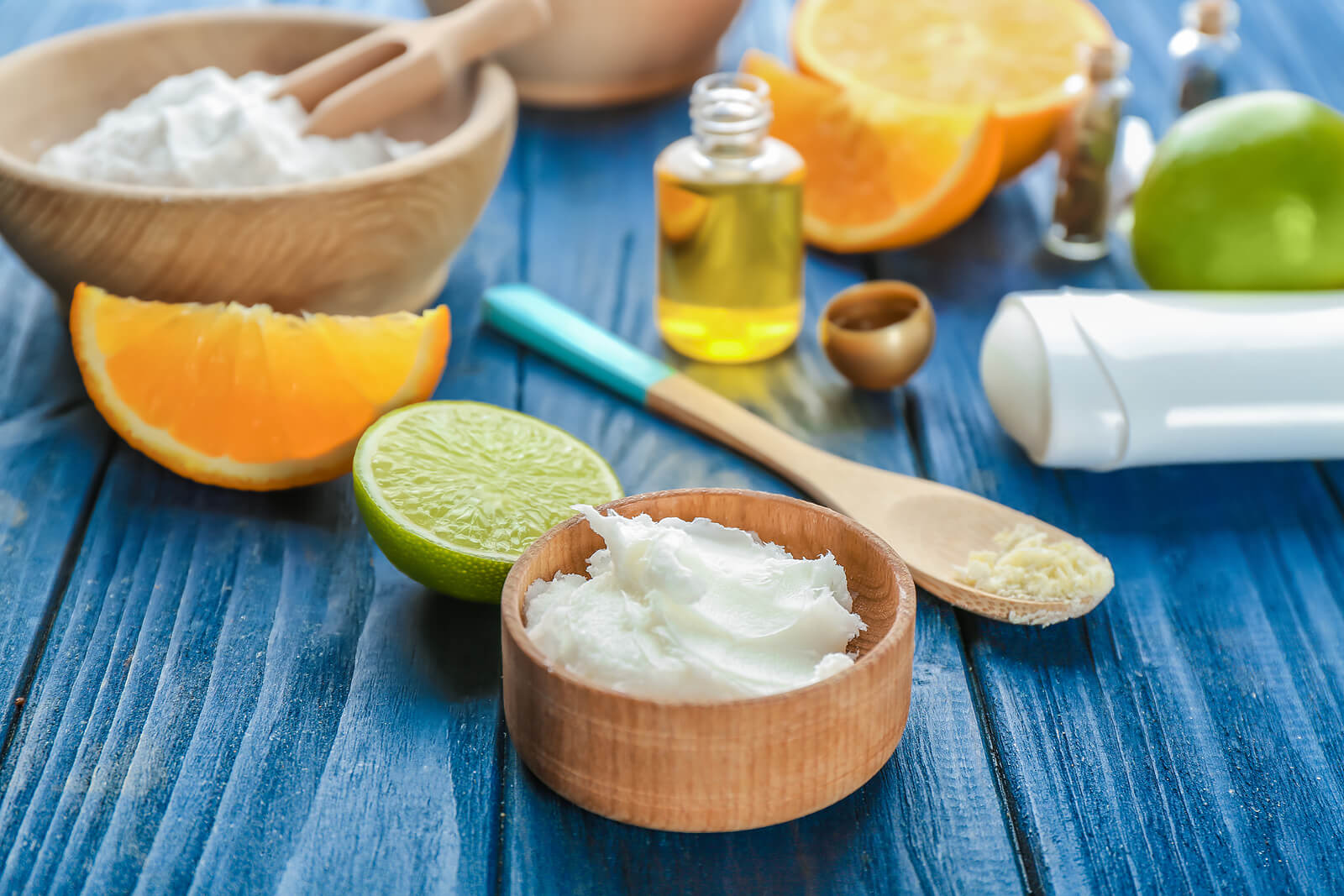In 1888, the debut of the first commercial deodorant marked a pivotal moment in the battle against underarm sweat. The first antiperspirant was marketed in 1903, and by the mid-20th century, the popularity of these products rocketed.
Consumers are now increasingly conscious of the substances they apply to their bodies and release into the environment. This is due to concern surrounding the ingredients in many conventional deodorants and antiperspirants.
The market has witnessed a surge in natural, eco-friendly deodorants in response to these growing concerns.
Join us as we traverse the disadvantages of traditional deodorants and antiperspirants and the advantages of natural ones. We’ll explore the anxieties deodorants provoke before navigating the landscape of natural alternatives and outlining three of the most popular brands.
The disadvantages of traditional deodorants
There are several drawbacks to traditional deodorants and antiperspirants. Although they’re generally recognised for their effective reduction and masking of sweat, they’ve become the focal point of ongoing media dialogues concerning safety and environmental impact.
Is deodorant bad for you?
The debate over the potential harm of deodorants has intensified in recent years, primarily focusing on the aluminium content and its purported link to cancer. Reputable sources like Cancer Research UK have refuted these claims, stating there’s insufficient evidence that aluminium and other common deodorant ingredients pose a significant cancer risk.
Health concerns extend beyond cancer. Aluminium blocks sweat glands, hindering the body’s natural detoxification process and ability to regulate temperature effectively.
Attention has also been drawn to preservatives like parabens found in deodorants. These compounds — typically listed as methylparaben, butylparaben, propylparaben, or isoparaben on ingredient labels — have been scrutinised by organisations like Cancer Research UK, the NHS, and the American Cancer Society. They assert the safety of parabens for cosmetic use, but concerns persist regarding their potential to irritate the skin. There’s also the unresolved question of the long-term effects of continual exposure to synthetic chemicals.
Scientific consensus generally deems these ingredients safe for topical application, but lingering doubts persist about their prolonged usage and potential health implications, underscoring the need for continued research.
Why is deodorant bad for the environment?

Environmental concern around deodorants stems from various factors, each contributing to a complex web of worries.
Aerosol antiperspirants are typically packaged in tinplated steel or aluminium cans, which are theoretically recyclable. However, that’s not the full story.
Research by the University of York revealed a startling reality: household aerosols now emit more harmful volatile organic compounds (VOCs) into the air than all the UK’s vehicles combined. Consequently, aerosol deodorants significantly contribute to air pollution and, in turn, climate change.
Alternatives like push-up and roll-on deodorants avoid this issue, and certain varieties feature recyclable containers. However, even recyclable packaging presents challenges — a glass roll-on deodorant container’s recyclability hinges on removing the plastic ball, complicating the recycling process.
The prevalence of single-use plastics in the deodorant industry also remains a pressing concern. As global efforts to reduce plastic waste intensify, minimising reliance on single-use plastics becomes imperative for individuals striving to adopt more eco-friendly practices.
A significant amount of deodorant packaging ends up in landfill sites, whether unrecyclable, hard to recycle, or littered. In landfills, it emits harmful greenhouse gases and risks releasing chemical contents into the ground, further compromising the environment.
Natural deodorants
A new type of deodorant has stormed the market in recent years, free from synthetic ingredients and packaged with the planet in mind.
Why is natural deodorant better for health and the environment?
Natural deodorants offer a holistic approach to personal care, prioritising personal well-being and sustainability.
Unlike their synthetic counterparts, natural deodorants harmonise with your body’s natural processes, effectively controlling body odour while allowing your skin to breathe freely.
Crafted from plant-based, naturally derived ingredients selected for their skin-friendly properties, these deodorants boast shorter, more transparent ingredient lists featuring familiar and trusted components that consumers readily recognise and understand.
The eco-conscious ethos of natural deodorants extends to their containers, where their impact is considered and minimised.
A popular material for single-use natural deodorant packaging is cardboard, which is readily recyclable at home.
Recycled plastic, aluminium, and glass are commonly used for refillable packaging that can be reused for years. Aluminium and glass jars facilitate closed-loop recycling when they’re finally disposed of, and reusable containers allow for effortless replenishment without generating unnecessary waste.
Some natural deodorant packaging is even compostable, providing a zero-waste solution.
Natural deodorant types
Many types of natural deodorants are available, simplifying the transition. Whether you prefer sprays, creams, roll-ons, or sticks, there’s a choice suited to your preferences, ensuring a seamless switch.
Embrace these products to freshen your armpits, nourish your skin, and contribute to a healthier planet.
A potential transition period can accompany switching from chemical to natural deodorant. This adjustment phase can last up to a fortnight. You might experience increased sweat production and heightened body odour as you expel the toxins that standard antiperspirants block.
To facilitate the transition, opt for natural fibre clothing that allows the underarm area to breathe freely.
How to make natural deodorant at home

Creating a natural deodorant at home is a rewarding endeavour that enables you to save money, reduce waste, and maintain complete control over the ingredients you apply to your body.
With countless homemade deodorant recipes available online, you can experiment with key ingredients to create a personalised deodorant tailored to your needs. These ingredients might include coconut oil, baking soda, apple cider vinegar, witch hazel, and arrowroot powder.
The best natural deodorants
Determining the best natural deodorant isn’t objective, as what works for one person may not yield the same results for another. It typically entails trial and error.
Let’s dive into a selection of the most popular natural deodorants to guide your exploration and kickstart your search for the perfect match.
Wild
Wild is a sustainable, refillable deodorant solution consciously designed to eliminate single-use plastic from your daily routine. Crafted from a natural formula without aluminium salts, the soft wind-up bar allows skin to breathe. Ingredients like tapioca starch ensure it effectively manages moisture levels and tackles odours for all-day freshness.
The formulation is gentle on most skin types, including sensitive ones, thanks to its minimal use of bicarbonate of soda and being thoughtfully balanced with moisturising elements to nurture the skin. With a wide range of refreshing scents such as Fresh Cotton & Sea Salt, Jasmine & Mandarin, and Coconut & Vanilla, there’s a fragrance to suit everyone.
Its commitment to environmental responsibility sets Wild apart — proudly carbon-negative, the company offsets 1.5 times its emissions through tree planting initiatives. The packaging reflects this ethos, featuring a reusable aluminium case that TerraCycle can recycle at the end of its life. Refills are sold in compostable bamboo pulp tubes.
Salt of the Earth
Salt of the Earth’s range of deodorants caters to diverse preferences, all crafted with 100% natural ingredients and free from aluminium. Unlike synthetic alternatives that clog pores, these deodorants combat odour by targeting the bacteria responsible for sweat breakdown, ensuring long-lasting freshness.
These deodorants are available in an array of enticing aromas, including Peony Blossom, Lavender & Vanilla, and Clary Sage & Mint, alongside unscented options for those with sensitivities.
Manufactured in the UK, Salt of the Earth deodorants adhere to cruelty-free and vegan principles, aligning with ethical consumer values.
With options ranging from spray to roll-on, stick, balm, and crystal, this natural deodorant brand ensures a suitable format for everyone. Some containers are manufactured from cardboard, and others are made from refillable and recyclable plastic, reflecting the brand’s commitment to sustainability.
The Natural Deodorant Co.
The Natural Deodorant Co. offers an extensive selection of balm deodorants encompassing Clean, Gentle, Active, and Teen ranges.
Crafted with 100% natural ingredients, these deodorants are sustainable, plastic-free, and suitable for vegans, catering to individuals of all ages, skin types, and activity levels.
Each range provides all-day odour protection through a clever blend of antibacterial magnesium and sodium bicarbonate, with the Active range featuring a more potent formula for enhanced protection.
There’s a fragrance for every taste, including refreshing blends like Lemon & Geranium, Orange & Bergamot, and Citrus & Black Pepper. The brand also offers plenty of unscented options.
Packaged in recyclable glass jars with aluminium lids, The Natural Deodorant Co. maintains its eco credentials from product to packaging.
